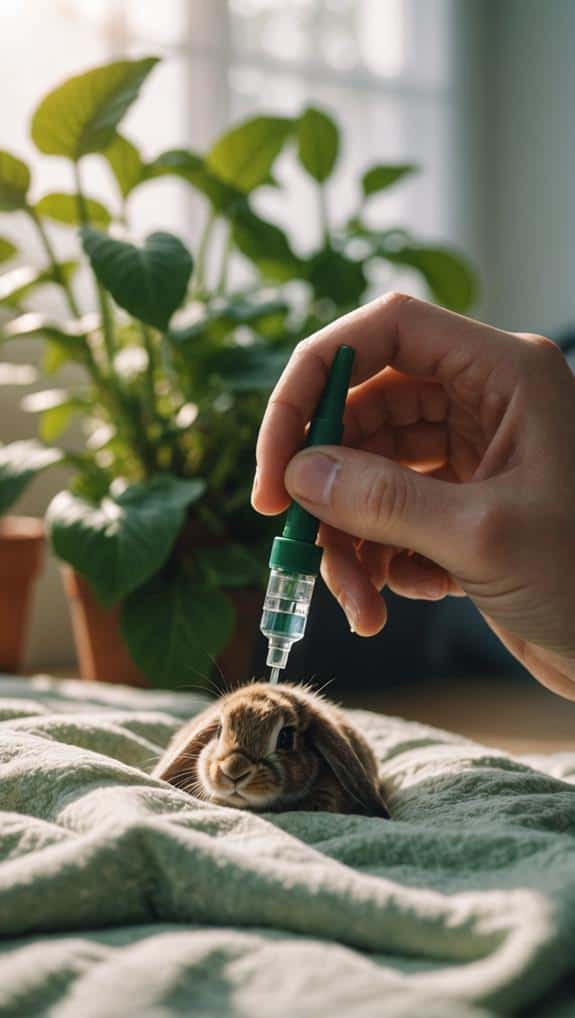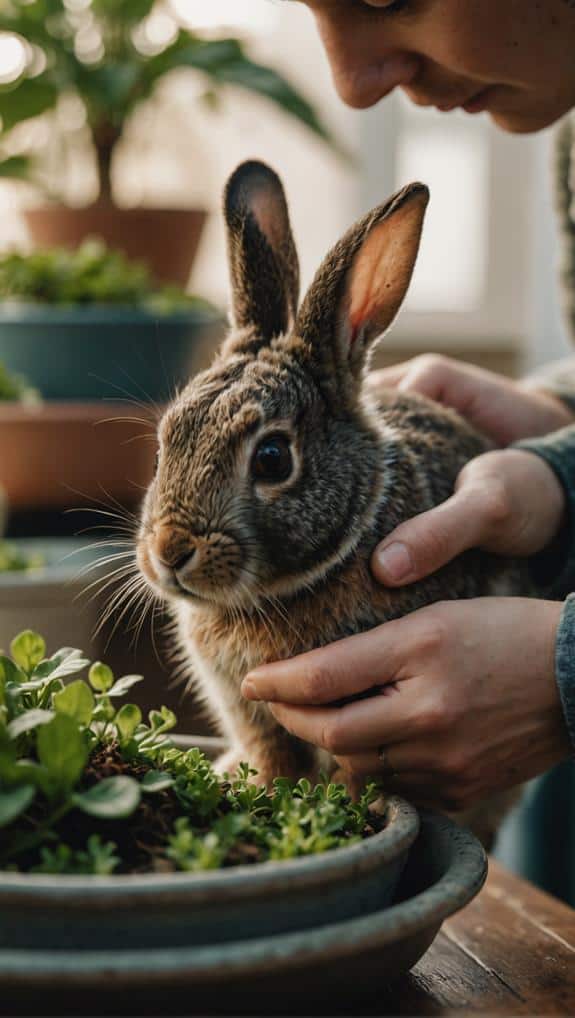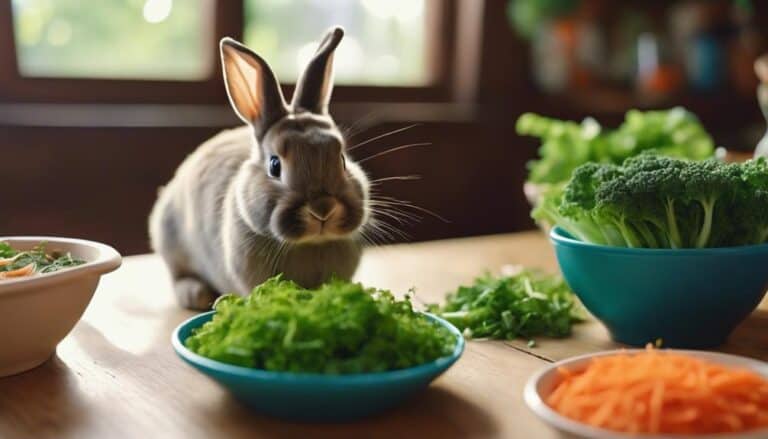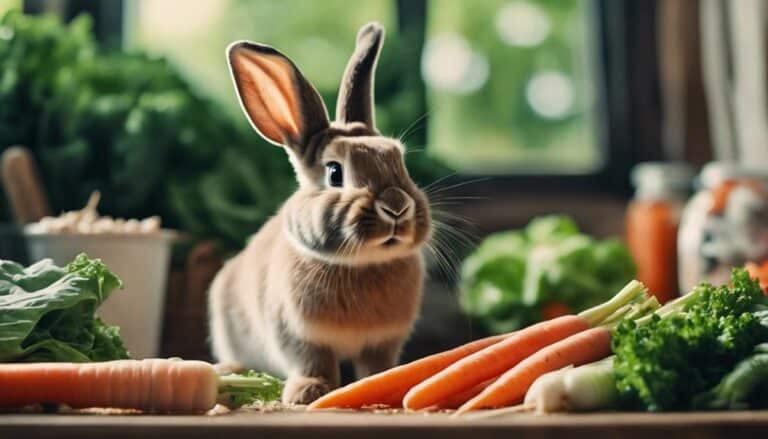You might think baby rabbits can hydrate themselves just like older ones, but that's not the case. It's vital to be proactive about their hydration, as their small bodies can quickly become dehydrated. By using a syringe for careful water administration, providing fresh water daily, and monitoring for dehydration signs, you can guarantee their health. Understanding these methods is essential for any bunny owner, especially if you want to avoid potential health issues that could arise from improper hydration. Let's explore these three effective strategies in detail.
Contents
Use a Syringe for Hydration

When caring for baby rabbits, using a syringe for hydration can be an effective method to guarantee they receive the necessary fluids. It's important to confirm that baby rabbits are well-hydrated, as proper hydration supports their urinary tract health and helps prevent conditions like rabbit UTIs.
To start, gently place the syringe in the corner of their mouth and offer small amounts of water slowly. Make sure to allow frequent pauses so they can swallow comfortably. If you notice any water dribbling out, stop immediately and give them a 30-minute break to prevent aspiration or choking.
Proper hygiene is essential when using a syringe for hydration. Always sterilize the syringe with boiled water before each use to avoid bacterial contamination.
Baby rabbits typically need about 2-30 mL of water per feeding, depending on their age, and should be fed five times daily to maintain adequate hydration.
If, after multiple attempts, your baby rabbit still can't drink from the syringe, don't hesitate to consult a veterinary professional. They may recommend subcutaneous fluid administration as a reliable hydration method.
Provide Fresh Water Regularly
Providing your baby rabbit with fresh water daily is imperative for its health and hydration. Baby rabbits require around 50-100 mL of water per kg of body weight to maintain adequate hydration levels. To guarantee they receive this essential resource, always provide fresh, clean water on a daily basis. In addition to fresh water, it’s important to monitor your baby rabbit’s eating habits, as their diet can also impact their hydration levels. Offering hay and vegetables with high water content, such as lettuce and cucumber, can further support their fresh water needs for rabbits. Always ensure that their water supply is free from contaminants and changed regularly to encourage drinking and promote overall well-being.
Regular grooming behaviors, which reflect social bonding and emotional well-being, can also be enhanced by guaranteeing proper hydration; a well-hydrated rabbit is more likely to engage in positive interactions with its peers and caregivers importance of bunny grooming.
Change the water in their containers at least once a day to keep it appealing and free from contaminants; stale water can deter them from drinking.
Using stable, heavy bowls made of ceramic or stainless steel is advisable. These materials help prevent spills and encourage frequent drinking. To establish a routine, introduce fresh water alongside their feeding schedule, making hydration a regular part of mealtime. This can greatly enhance their water intake.
It's essential to monitor your baby rabbit's water intake and urine output closely. Decreased consumption can indicate potential dehydration issues that need immediate attention.
Monitor for Dehydration Signs

Even with fresh water available, it's important to keep a close eye on your baby rabbit for signs of dehydration. Dehydration in rabbits can manifest in various ways, and being vigilant can greatly impact their health and well-being. One key indicator is the appearance of their droppings; small, hard pellets suggest they may not be drinking enough water.
Additionally, monitor their energy levels, as abnormal behaviors like lethargy can indicate health issues that require prompt attention, including observational indicators of health.
You should also monitor the color of their urine; dark, concentrated urine indicates inadequate fluid intake. Additionally, assess the skin turgor by gently pinching the skin; if it doesn't quickly return to place, this could signal dehydration.
Lethargy is another concerning symptom; if your baby rabbit seems unusually tired or less active, it's time to take action.
Regularly weigh your rabbit, as weight loss can be a strong indicator of dehydration and necessitates immediate veterinary attention.
Final Thoughts
In the grand adventure of rabbit care, you might think baby bunnies are just little fluffballs that drink like camels. Ironically, these tiny creatures need your help to stay hydrated! By using a syringe for careful hydration, providing fresh water daily, and keeping an eye out for dehydration signs, you can guarantee they thrive. After all, who knew that being a bunny bartender would be part of your job description? Your attentive care makes all the difference for these little ones.






